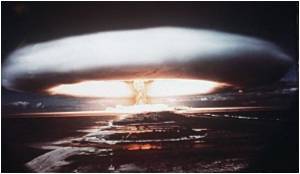
"Most states had completed little to no planning for public health surveillance to assess potential human health impacts of a radiation event," said the study in Disaster Medicine and Public Health Preparedness, a journal of the American Medical Association.
Few states said they had the resources to test the public for radiation exposure.
"The results of this assessment indicate that in many measures of public health capacity and capability, the nation remains poorly prepared to respond adequately to a major radiation emergency incident," said the study.
"With nearly half of the responding states not having a response plan, a large portion of the US population is at increased risk should a radiological event occur within the country's borders," it said.
"Without a comprehensive plan, states in which a radiation emergency occurs are likely to mount inefficient, ineffective, inappropriate, or tardy responses that could result in (preventable) loss of life."
Advertisement
The report included a series of recommendations for state to improve preparedness, such as "substantially" increasing education in radiation emergency response among public health personnel, boosting strategic planning and exercise scenarios for radiation release events.
Advertisement
Japan has been grappling with a nuclear emergency since a massive earthquake and tsunami battered its northeast coast Friday.
The nuclear plants shut down automatically, as they are designed to do. But the loss of power in the area and tsunami damage to back-up generators apparently crippled reactor cooling systems.
Source-AFP












